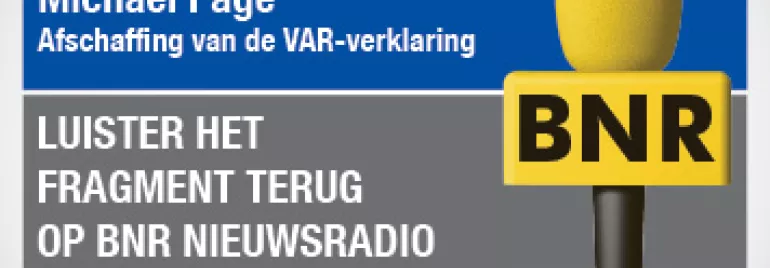Are you hiring?
Would like to talk to us about your recruitment needs?

There is great concern about the new Dutch law for freelancers. Large companies are less inclined to hire freelancers because they fear additional taxes. Read below the transcript of the radio report by BNR News Radio in which Mischa Voogt – Managing Director of Michael Page – criticizes the new law.
To avoid any risk, companies are saying farewell to freelancers. Recruitment agency Michael Page hardly gets any assignments for freelance positions, says Mischa Voogt: “We saw the first signs already last week, but the situation develops day by day, or even by the hour.”
Maarten van Panhuis, of Payroll Company Firm Flex, notices the same trend: “The law has changed, but the communication about the new legislation is minimal. Therefore companies choose the safest option and say: we don’t hire any freelancers. Or we hire them in another way. Just to be sure we’re not at risk. ”
The disquiet will only increase. The last few days there seems to be an anti-freelancer mood. According to documents that BNR has seen, large corporations are not willing anymore to hire freelancers for new assignments. The companies didn’´t want to comment on the situation. But Mischa Voogt works on a daily basis with these corporations: “Especially the bigger players, the multinationals, want to avoid any risk of being on the wrong side of the law.”
It's all about the new law, Deregulation Determination Labor Relations. The law was designed to put an end to employees, falsely working under a freelance contract. The problem is that the Dutch tax authorities only determine afterwards if somebody classifies as a freelancer or not.
Mischa Voogt: "When the tax authorities discover that somebody cannot be classified as a freelancer, they will immediately take action. Companies want to prevent that from happening. As long as they don´t get any guaranties beforehand, they will create these guaranties themselves, by working with other kinds of contracts instead of freelance contracts.”
Due to the cautious attitude of the large corporations, freelancers might be forced to give up their self-employed status. Mischa Voogt: “If you have chosen to be a freelancer and organised all your paperwork to be able to be self-employed, it’s disappointing to be forced to give up your status as an independent contractor.”
Both Voogt and Van Panhuis blame Secretary -of -State Wiebes and the Dutch tax authorities for the unrest. Maarten van Panhuis: "I urge the government to start communicating clearly, instead of making everything extremely difficult to communicate on minimal basis. Because it causes ambiguity and uncertainty. Companies don’´t want that.”
Mischa Voogt: "I think it would be good if the government or the tax authorities would provide some additional explanation. A long as that is not the case, I think the unease will remain."
May 1st 2016, the Declaration of Independent Contractor Status (also known as VAR) was phased out. It will be replaced by the so called DBA law. This is what you should know about the new law.